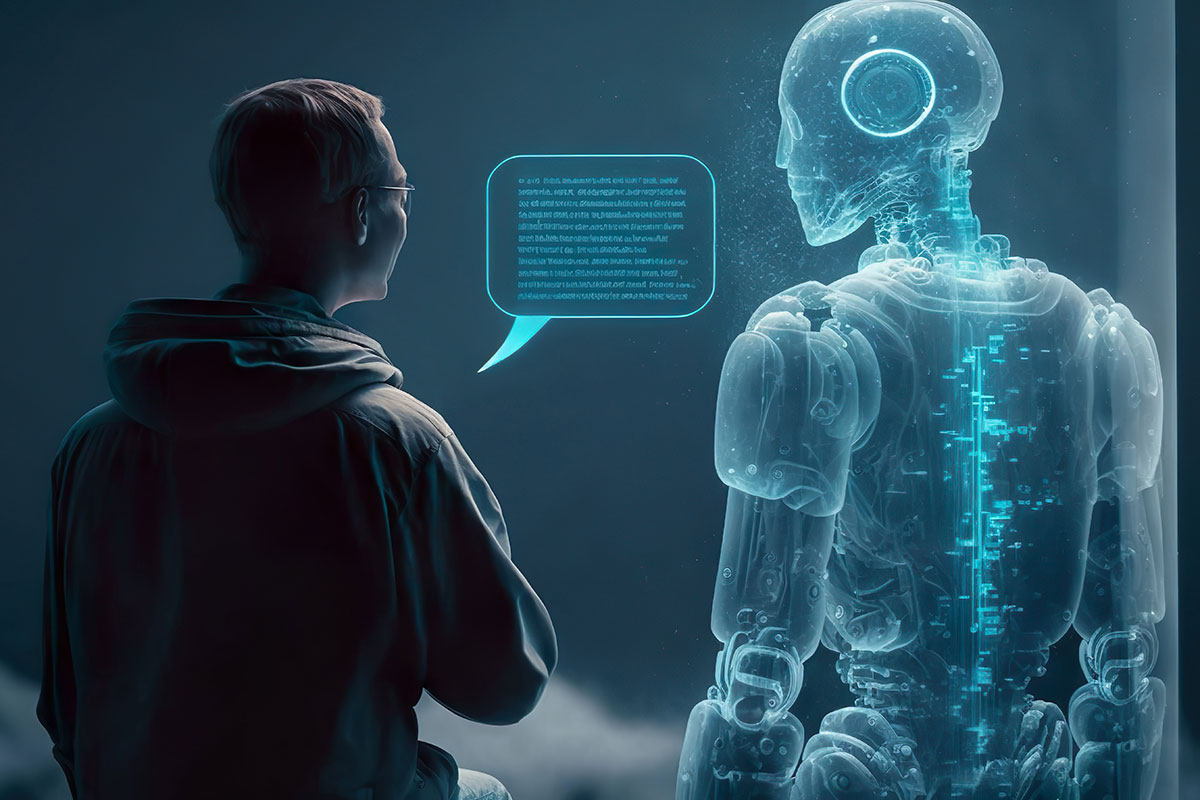The path ahead with artificial intelligence
Telenor has defined a set of guiding principles to support the responsible development and use of AI in a consistent way across our companies. The Guidelines can be found here.

Can AI revolutionise the way we communicate, work and even how we think? The technology is already part of our lives. A key area is the domain of responsible AI, aiming to create software and solutions that are safe and secure, preserve data privacy, are non-discriminatory and are understood by and empower humans.
Artificial intelligence is based on constant evolution, making it difficult to predict how it will be used in the distant future. AI has enormous potential to benefit society, but it also poses risks and challenges that must be addressed through the development of responsible AI (including explainable, non-discriminating, safe and secure AI), as well as through effective governance and regulation.
The success of AI uptake will depend on how successful economies are to embrace this technology as a broader societal good, that there is open discussion on challenges and risks, that we engage all societal groups and invest in key capabilities across multi-disciplinary domains.
To trust or not to trust, that is the question
What does it mean to have responsible AI? With models that contain billions of parameters, can they at all be explainable? Understanding the working of this technology, which is in constant evolution, is important. By working together to address the concerns, we can ensure that AI is used to its full potential while minimising its potential drawbacks. This is going to be key for widespread adoption.
Who takes responsibility for good and ethical use of AI?
One way Telenor will address concerns is through investments in research within the domain of responsible AI, which aims to create systems understood and controlled by humans. This can enable people to have greater confidence in the technology, as they would be able to understand how it works and how it makes decisions.
Responsible AI refers to systems that are safe, secure, transparent, explainable, non-discriminatory and preserve privacy. This means also developing the technology and implementing governance measures to ensure that the AI-embedded products and services are not subject to cyber-attacks or other forms of interference. This is clearly an important topic in the critical infrastructure domain, such as network operations.
AI already ingrained in our daily lives
Already now, most people will encounter AI several times a day, though unknowingly, as it is hidden behind useful functionality such as voice recognition, biometric login and other specialised use cases. This is also true for the telecom sector.
AI can be used for so much more. At Telenor, our ambition is to become carbon neutral by 2030 in the Nordics. We are taking steps to reduce our carbon footprint and save energy with the use of data and AI technologies that can support energy-saving practices, enable more efficient use of equipment and help us benefit from renewable energy sources. In the future we expect that AI will help maintenance of infrastructure and ensure that customers can stay connected even during extreme weather or other events.
The utilisation of AI/machine learning techniques will be part of the solution for network operators. More sophisticated data analyses and forecasting software tools will empower engineers in network rollouts and investment planning. More advanced forms of AI software will be used to detect and predict various types of anomalies (such as drop-off calls or signal losses) on our mobile networks and perform higher quality root-cause analysis for troubleshooting.
While we expect that these innovations will ultimately be delivered by the network equipment industry, it is also important to develop our own insights into this – both to increase our expertise as buyers of various intelligent solutions, explore new growth opportunities and move the telecom industry into a more automated and green future.